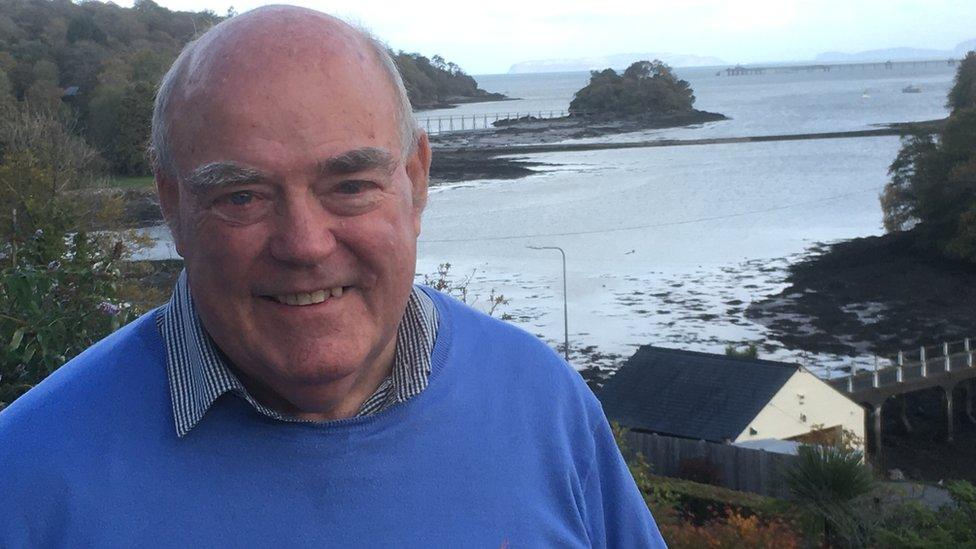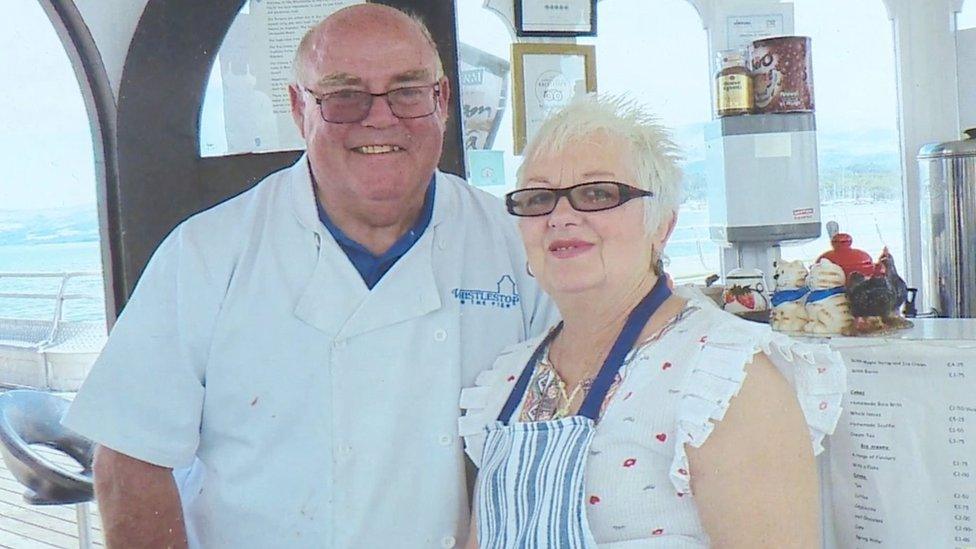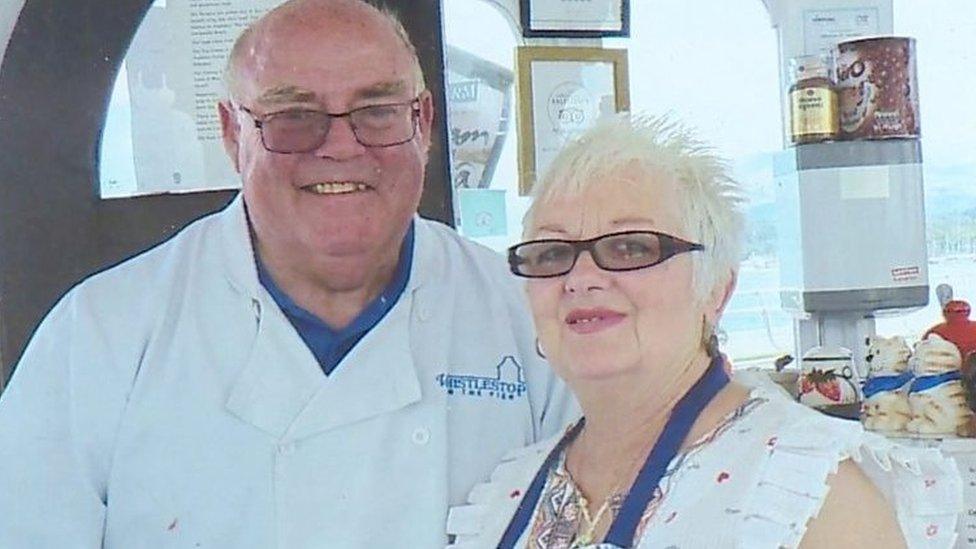Covid: Carer's sight saved after eye surgery cancelled twice
- Published

Terry Thomas "would have been blind" without the 15-minute operation
A 72-year-old carer whose eye surgery was cancelled because of Covid can now see again.
Terry Thomas, who has been blind in one eye for 50 years, was left struggling to care for his seriously ill partner while waiting for a cataract operation on his other eye.
A private company carried out the procedure free of charge after seeing his story on BBC Wales.
"It's great - I can see!" said Mr Thomas, from Menai Bridge on Anglesey.
"I feel relieved. I feel a lot happier."
Mr Thomas was told he needed treatment on his eye two and a half years ago, but the procedure was cancelled in February and again on the day the UK's Covid-19 lockdown began in March.
His partner June Lavelle-Lepsa has since been diagnosed with motor neurone disease. With her health rapidly deteriorating to the point where she needed a wheelchair and could no longer communicate verbally, he became a full-time carer.
But Mr Thomas struggled with reading labels on Ms Lavelle-Lepsa's medication, using some of the equipment needed to help her and could no longer read to her.

Mr Thomas was not able to see his partner's medication properly due to his condition
With no new date forthcoming for an operation at Ysbyty Gwynedd in Bangor, Mr Thomas shared his story in a BBC Wales report.
Optegra, a private eye clinic in Manchester which also does work for the NHS, saw the story and, on Thursday afternoon, he underwent a 15-minute operation to clear the cataract.
"I came out of the operation and all of a sudden I could see the times on the clock," Mr Thomas said.
"The colours were so much brighter. It was incredible - I didn't realise how bad my eyesight was."
He thanked the company - and surgeon Christopher Hemmerdinger - for carrying out the surgery.
Mr Hemmerdinger said the case "would pull on anyone's heartstrings".
"His vision would have got worse as his cataract got worse. He had already gone from pretty normal vision to well below the legal standard for driving."
Arpan Guha, acting executive medical director at Betsi Cadwaladr University Health Board, said: "We are disappointed that we were unable to provide Mr Thomas's treatment in a timely manner, but we are pleased to hear he has now received his surgery."
- Published16 October 2020

- Published7 October 2020